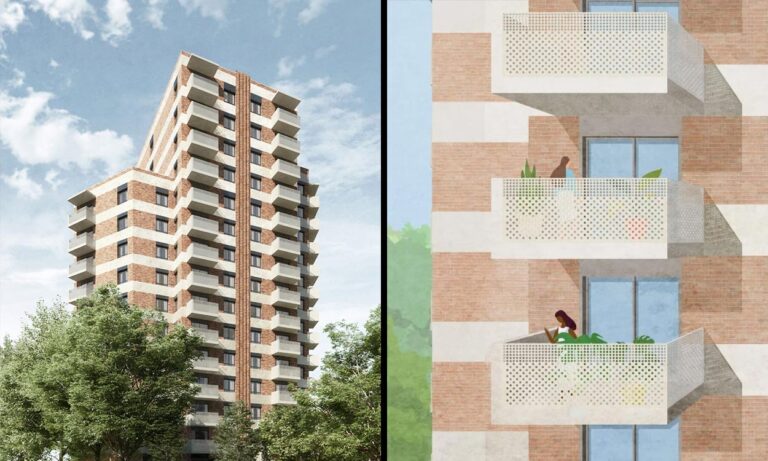New women-only housing social experiment sparks debate regarding labelling women as vulnerable
Plans have officially been approved for Britain’s first ever women-only high rise tower block. Set to be based in West London, the building will hold 102 low-rent flats, with the design plans having been constructed specifically to cater for single women, victims of domestic abuse and Black and minority women who face significant pay gaps and housing discrimination.
Each home has been thought out with female occupants in mind. According to The Guardian, some features may include slightly lower work surfaces and careful attention to ventilation for women experiencing menopause. Transgender women will also be eligible.
It’s no exaggeration to say that this new-build has definitely sparked some quite intense online debate. However, the discourse has been less so about the purpose of the flats—mainly because it’s undeniably a good thing to provide low-cost housing for women who’ve been systematically disadvantaged or have been victims of abuse. The problem some commentators seem to have sits with the language that’s been attached to the project.
Journalist Zoe Williams recently wrote an article titled: Women-only housing for Britain’s new class of handmaids—how is that progress? Within the piece, Williams lamented over the fact that women-only housing paints women as inherently vulnerable and incapable of looking after themselves.
The writer stated: “The insult of being characterised as somehow weaker or less capable, for falling foul of a housing crisis that has been decades in the making, will be brushed off by a lot of women, at least 102 of whom will look at a flat they can finally afford and think the rest is noise.”
I completely understand and agree with Williams that some of the language surrounding this new-build places too much onus on the “vulnerable women,” rather than the government’s complete failings when it comes to the housing market.
However, I would also argue that women from minority backgrounds suffer a multitude of societal injustices, none of which makes them vulnerable or incapable—rather, it makes them victims of an inherently corrupt system. Simply saying that this building minimises the agency of women takes away authenticity from the lived experiences of the women this kind of project will help. Moreover, isn’t the genuine good this construct will do more important than a potentially poorly written tagline?
Women’s Pioneer Housing, the organisation spearheading this project, works directly with women’s refuges, homelessness agencies and other women’s organisations to provide long-term safe, secure, and affordable homes. Chief executive Tracey Downey recently stated: “We strongly believe that providing more good-quality, affordable homes for women is critically important, particularly during this cost of living and energy crisis. We are more than just bricks and mortar. We support our residents’ independence and well-being, and this new building will provide a real home for many women in dire need.”
Work is due to begin over the summer, and it’s also likely that this project will lead to the development of other women-only builds. Yes, there might need to be a shift in the language we use when describing the intended occupants, but we should also recognise the immense difference these flats might make to women who’ve been completely left behind and ignored by an intrinsically amoral government. No one should trivialise the sheer importance of a safe home.






